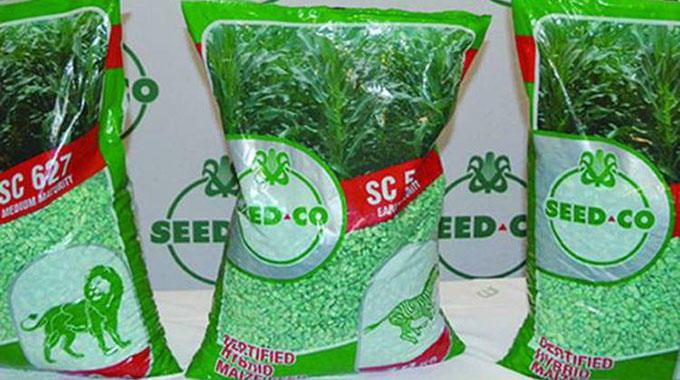Smallholder farmers in rural areas have urged the government to distribute presidential seed inputs on time and align them with agroecological regions to ensure food security and boost yields.
The Presidential Input Scheme, initiated by the government, aims to support smallholder farmers by providing essential agricultural inputs such as seeds and fertilizer.
The program addresses challenges faced by smallholder farmers, including limited access to quality inputs, financial constraints, and the impact of climate change.
The initiative seeks to boost agricultural productivity, ensuring food security, and improving the livelihoods of rural communities.
However, speaking to CITE, one smallholder farmer, Mina Ncube from Nyamandlovu, expressed concerns that the seeds mainly benefit those with irrigation, while those relying on rain struggle.
“We have seen the success of the scheme for those with irrigation. For us who rely on rain, we are suffering as the yields are very low. The government gives us seeds such as iphana and idube for our soil, which are good, but the challenge is that we received them late. This year, we had a few days of rain,” said Ncube.
“As for small grains like sunflower, sorghum, and beans, they all failed because we received the seeds very late. When we planted them, they did not grow. Our appeal is for us to receive these seeds early so that we can prepare and plan accordingly for the farming season,” she said.
Another farmer, Bekezela Tshuma from Plumtree, also lamented the delays in receiving the seeds.
“We do receive the presidential seeds, but it’s really hard to measure their impact on us as small-scale farmers from Plumtree because we receive them late. Sometimes the rains will have long gone, or we plant very late,” said Bekezela Tshuma.
Meanwhile, Gokwe Central Member of Parliament, Daveson Masvisvi, raised the matter in Parliament, inquiring from the Minister of Lands, Agriculture, Fisheries, Water, and Rural Resettlement about the government’s preparedness for the upcoming planting season 2024/25 regarding the supply and availability of Presidential inputs, particularly maize seed, small grain seed, cottonseed, fertilizers, and other logistics.
In response, the Minister of Justice, Legal and Parliamentary Affairs, Ziyambi Ziyambi, said the government had learned several lessons from the El Nino drought.
“We have learned several lessons, particularly after the last El Nino drought that ravaged us this past season. As a result, we are coming up with robust response mechanisms to ensure that we achieve food self-sufficiency,” said Ziyambi.
He assured that the government would distribute seeds according to the region in the upcoming season.
“We have realised that previously we were buying maize seed and sending it to regions where maize cannot grow. Now, we are ensuring food self-sufficiency by procuring seeds that are suitable for each region. This is a work in progress,” Ziyambi said.
“We have committees working on this, and we are hopeful that this coming season we will have a bumper harvest, not only of maize but also of several grains. As we have done with the winter cropping season, we are closing the food deficit gap by cultivating a lot of winter wheat. We are pleased that the current hectarage is the highest in the history of this country.

